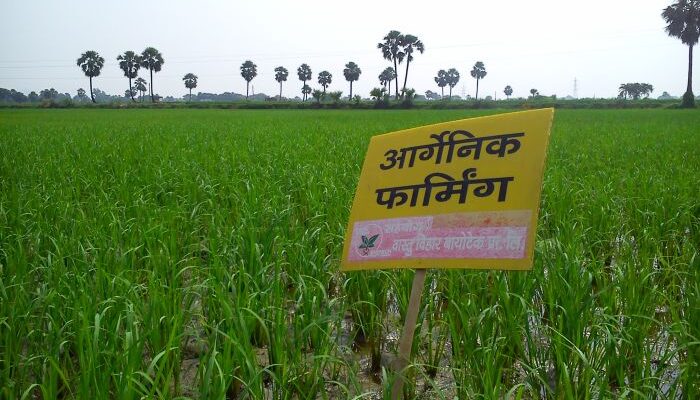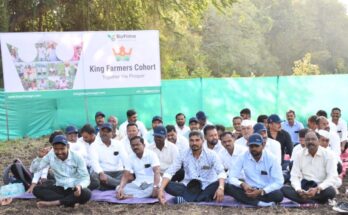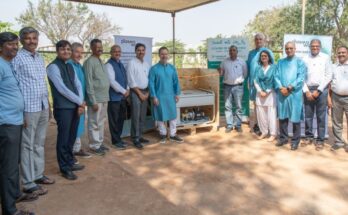Indian Council of Agriculture Research (ICAR) has developed technologies for rapid composting within farm renewable resources which is a potential source of organic fertilisers. Enriched compost like phosphor-nitro or phosphor-sulpho compost has also been developed for use as organic fertilisers in agriculture. Bio-fertilisers have also been developed under the All India Network Project on Soil Biodiversity Bio-fertilizers for different crops, Union Minister of Agriculture and Farmers Welfare, Narendra Singh Tomar said in a written reply in Lok Sabha on Tuesday.
ICAR has developed improved and efficient strains of bio-fertilisers specific to different crops and soil types under the Network project on ‘Soil Biodiversity-Bio-fertilizers’. Under this project, ICAR has developed improved and efficient strains of bio-fertilisers specific to different crops and soil types, liquid bio-fertiliser technology with higher shelf life, bio-fertiliser consortia formulation with two or more bio-fertiliser strains, microbial enriched bio-compost and zinc and potassium solubilising bio-fertilisers. The ICAR also imparts training to educate farmers on the use of bio-fertilisers, the minister further said.
You may also like to read: 5 Govt schemes, promoting organic farming in India
ICAR under the Network project on ‘Soil Biodiversity-Bio-fertilizers’ has confirmed that bio-fertilisers can improve crop yields by 10-25 per cent and supplement costly chemical fertilisers (N & P) by nearly 20-25 per cent in most cases when used along with chemical fertilisers, Tomar informed.
The government of India is promoting the use of organic fertilisers under organic farming through the scheme of Paramparagat Krishi Vikas Yojana (PKVY) and Mission Organic Value Chain Development in North East Region (MOVCDNER) since 2015-16. Under these schemes, farmers are primarily encouraged for organic cultivation using organic fertilisers along with other organic inputs and end-to-end support to farmers i.e. from production to marketing of organic produce is ensured. Hands-on training to farmers about on-farm production of organic fertilisers and their use are integral parts of these schemes. Farmers are provided a subsidy of Rs 31,000 per hectare for three years under PKVY and Rs 32,500 per hectare for three years under MOVCDNER for on-farm organic inputs including organic fertilisers as well as for procurement of off-farm organic inputs, the agriculture minister said.
Under the Soil Health Card (SHC) scheme under Rashtriya Krishi Vikas Yojana (RKVY), states are provided assistance to promote Integrated Nutrient Management (INM) through judicious use of chemical fertilisers in conjunction with organic fertilisers. Under the SHC scheme, various training and demonstration programmes as well as farmers’ melas and workshops are organised, he said in the Lok Sabha.
You may also like to read: Cargill, TechnoServe partner to bring 25,000 acres of maize farms under regenerative agriculture program
In order to ensure the availability of good quality bio-fertilisers, organic fertilisers and bio-stimulants, the Government of India regulates its quality under the Fertilizer Control Order (1985). The government has notified 32 quality testing laboratories and initiated steps to accredit its laboratories to strengthen quality control activities. The government has also developed a web portal for online registration of all kinds of fertiliser to make registration easier and more simplified, he said.
For encouraging the production and use of organic fertilisers, Government has approved Market Development Assistance (MDA) at Rs. 15,000 per tonne for fermented organic manure (FOM).
To incentivise the farmers to reduce the overall consumption of fertilisers for improving soil health and fertility and sustainable productivity, Government has announced “PM Programme for Restoration, Awareness, Nourishment and Amelioration of Mother Earth (PM-PRANAM)” which will be launched to incentivise states and union territories to promote alternative fertilisers and balanced use of chemical fertilisers. Under this programme, 50 per cent of subsidy savings will be passed on as a grant to the state that saves the money, the minister further informed.
Initiatives for Natural Farming
Under the Mission Life programme, the Government is taking up various environmental initiatives to encourage natural and organic farming using organic and bio-fertilisers to reduce carbon footprint, and reduced emission of Green House Gas (GHG) emissions through the reduction of chemical fertilisers and pesticides, Tomar added. ICAR also imparts training and organises front-line demonstrations and awareness programmes to educate farmers on all these aspects.
You may also like to read: IITM Pravartak, WayCool Foods join hands to bring regenerative agriculture tech stack to farmers
The government is preparing to promote natural farming on a larger scale in mission mode to cover 7.5 lakh hectare area along the Ganga basin and other rain-fed areas by developing 15,000 clusters by transforming one crore farmers into natural farming in which 10,000 Bio-Input Resource Centers (BRC) will be set-up for a continuous supply of local livestock based natural farming inputs like Beejamrut, Jeevamrut and Neemastra. This programme will reduce consumption of chemical fertilisers, Tomar informed the lower house of the Indian parliament.
The National Center of Organic and Natural Farming (NCONF) and its Regional Center of Organic and Natural Farming located at Ghaziabad, Nagpur, Bangalore, Imphal and Bhubaneswar are organising various HRD training namely One Day Farmers’ Training, Two Days Training for Extension Officers/Staff, Two Days Training on PGS, 30 Days Certificate course, One-day Jaivik evam Prakratik Kisan Sammelan for 500 participants, One Day stakeholder consultations/ conferences on natural farming for 100 participants, an orientation programme on natural farming and awareness programmes across the country to disseminate information on organic and natural farming as well as on- farm production and use of various kinds of organic and bio-fertilisers. NCONF and RCONF also organise online awareness campaigns and training programmes on organic and natural farming and production and use of organic and bio-fertilisers, the agriculture minister said in the parliament.





